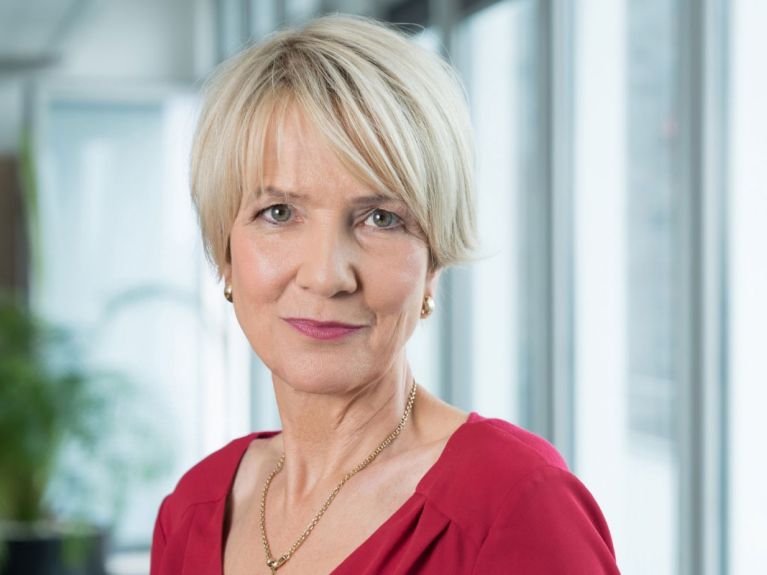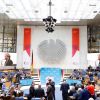“Supporting journalism through publication”
Freedom of the press is under pressure worldwide – the Deutsche Welle programme director explains in our interview what is being done about this.

Ahead of the 15th DW Global Media Forum “Shaping tomorrow, now!” that Deutsche Welle will be hosting on 20 and 21 June 2022, Programme Director Gerda Meuer talks about the threats to media professionals worldwide and how those affected can be supported.
Ms Meuer, why is it so important for journalists to be able to work without restrictions or fear of reprisals?
Because only independent journalism can help put a very simple idea into practice. Namely the idea that members of a society should be provided with unbiased information to ensure that the societies in question are ready for the future. “Unbiased information for free minds” is our key message at Deutsche Welle. And this sums it up. Free access to information is essential. However, when we look at freedom of the press worldwide, in places such as Asia and Africa, the picture is alarming. In 2021, over 400 media professionals were imprisoned – the highest yearly figure ever. Autocrats and dictators around the world fear the truth, and their power is often based on lies. In such cases, it is often just a few courageous media people who are committed to the truth and have to protect themselves and their work against the lies.
What is your view of the current situation in certain regions?
Enemies of independent journalism can be found on every continent. Of particular concern at present are Russia, China, Iran, Saudi Arabia and a number of other countries in the Arab world and Latin America. What we have experienced in this respect in our work around the world tallies with the freedom of the press ranking compiled by “Reporters Without Borders”. From talking to my colleagues in over 100 nations, I also discover how things stand in terms of press freedom in their countries. I learnt for example about new media laws in India and Bangladesh designed not only to regulate social media more strictly but also to make investigative research even more difficult. I am likewise concerned about tougher media laws in Turkey and Hungary – not only because they directly affect our own staff. All over the world, online reporters in particular are facing growing repression, ranging from digital surveillance and public defamation to threats and murder.
Unbiased information for free minds
Are there any positive developments?
Yes, definitely. In many countries, for instance, we have for some time been seeing a growing awareness of the need for greater diversity in journalism. This includes a broader selection of topics, more diverse media outlets and more sensitive language. Even in countries in more conservative regions of the world, such as Latin America or Eastern Europe, we are increasingly seeing women’s issues being addressed, or topics that relate to specific target groups that have previously received little consideration.
To return to the threat to journalists, how do those affected deal with this situation?
That depends on their circumstances. Some journalists who are subject to repression in their home countries see no other option but to go into exile or give up their profession. However, there are also media professionals who make a conscious decision to stay because they want their voice to be heard within the system. That takes a great deal of courage.
We also provide a platform for oppressed media professionals
What possibilities are there to promote independent journalism worldwide, and what is Germany’s contribution?
In this respect, I can only talk about what we are doing, that is to say Deutsche Welle. It remains the case that the best way to support journalism is through publication. An article, a video, a podcast – anything that people are trying to prevent getting out but that finds a platform nonetheless helps promote independent journalism. At Deutsche Welle, we also provide a platform for oppressed media professionals. We have people working for us who can only pursue their journalistic activities outside their homelands, as well as those who are continuing to report from their countries despite the threat of repression. In addition, we present the Freedom of Speech Award each year for outstanding achievements in promoting freedom of expression. This year, it is going to Mstyslav Chernov and Evgeniy Maloletka from Ukraine. These two reporters are supplying the world with information about Russia’s war of aggression against their country, including a unique report about the Russian army’s siege of the city of Mariupol. This impressive courage can give hope to our colleagues around the world, making it clear to them that their work is needed.


